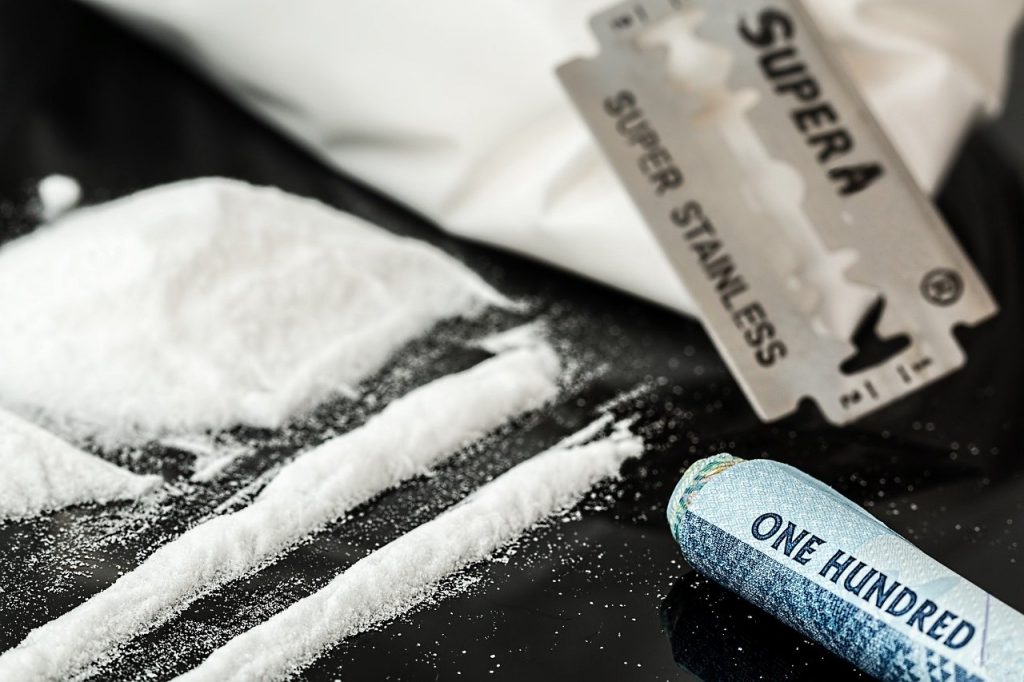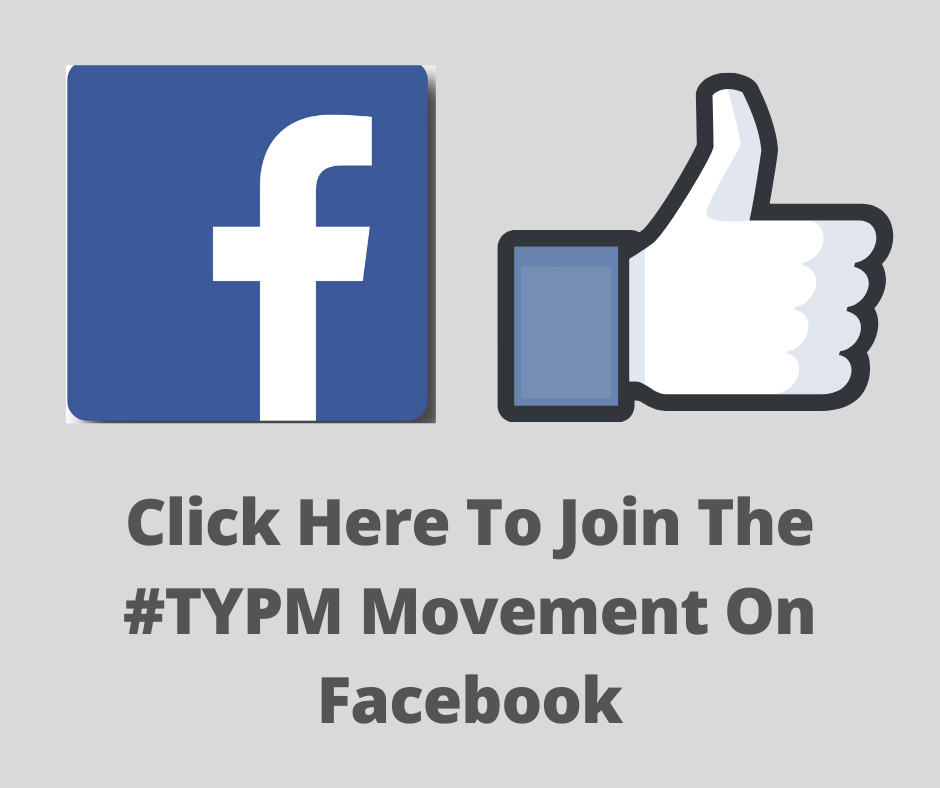
By the time you join the Foreign Legion, you really have got serious about running away from yourself.
Anders Beatty, now 50, was pretty good at running away most of his adult life.
“I tried everything,” he admitted, “hard drugs, detoxes, rehabs, 12-step programmes. I tried different relationships, jobs, towns, countries, continents but somehow, the me I was running away from always caught up. Nothing worked.
“I could not escape myself and my addictions, not even in the Foreign Legion.
“Most of my life, I looked and tried to fix myself externally whether I was chasing new jobs, new relationships, environments or highs. Nothing would fill the gaping wound I felt in my chest.
“Plant medicines helped me look internally for the answer, the only place where it is, where it always was. Once you realize that the real work is about getting to know who you are rather than trying to be something that you are not, then you are on the road to mending.
“Carl Rogers, the eminent American Psychotherapist, titled his seminal book On Becoming A Person. He hit the nail on the head with that title.”
Anders began his healing journey at the age of forty-five, after going abroad and using ibogaine, the most powerful plant medicine for dealing with addictions.
“It took withdrawals away overnight. It also gives visions and incredibly real insights into your childhood and why you’re messed up,” he said. “There is always childhood trauma at the root of addiction problems.”
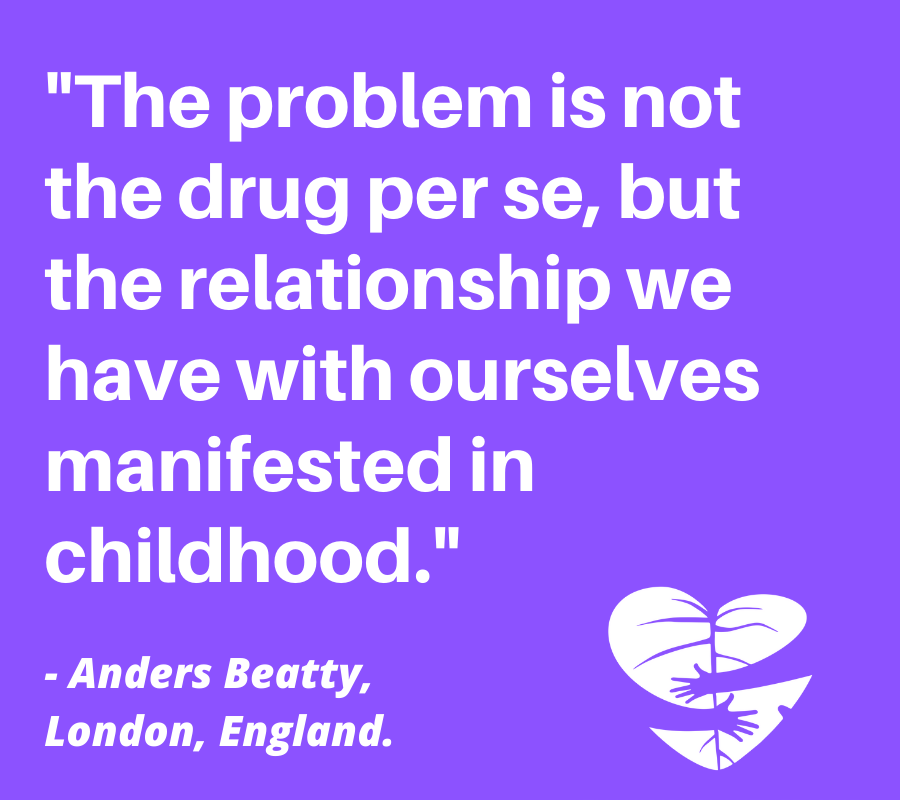
“Too many of us learn at an early age not to love or respect ourselves, and we have all kinds of negativity hammered into us – that we got it wrong, that we are no use, etc.
“This type of negative conditioning is extraordinarily prevalent and normalized within the Western cultural narrative, therefore self-medicating through drug abuse is a way of surviving the pain of childhood conditioning born from cultural, familial and societal expectations.
“So, the problem is not the drug per se, but the relationship we have with ourselves manifested in childhood. Once we start the process of loving that child rather than castigating and denying him, that’s when the compulsion to self-medicate begins to evaporate. Plant medicines help this process incredibly.”
In a foul, angry mood at his sister’s wedding, where he was “incapable of being happy for her”, Anders took his first hard drug – a line of cocaine.
“That first line of cocaine felt amazing, and that was me for the next twenty years. Totally messed up. It’s important to understand that a hit of a drug such as coke, crack or heroin dissolves the pain inside almost immediately.
“It is, in my opinion, a perfectly intelligent and adaptive response to use it. Addiction, to begin with, is not about being out of control but being in control. We start to self-medicate to feel control.”
Directly after taking ibogaine five years ago, Anders realised he had to do more to help himself.
“I had to change my environmental factors, for a start. I left London and for four months, sat in a Swedish forest, where my parents had a cabin. I didn’t want to lose my sobriety so why on earth would I throw myself back into an environment where it would only be too easy for me to get drugs if I was feeling fragile?
“In the forests of Sweden, I started the process of changing bad ritual for good ritual. I started loving that inner child.
“I took up sports again, learnt to cook for myself, took long walks, swam every day, started reading again and discovered that plant medicine, the best nurse in the world, is nature in conjunction with play.”
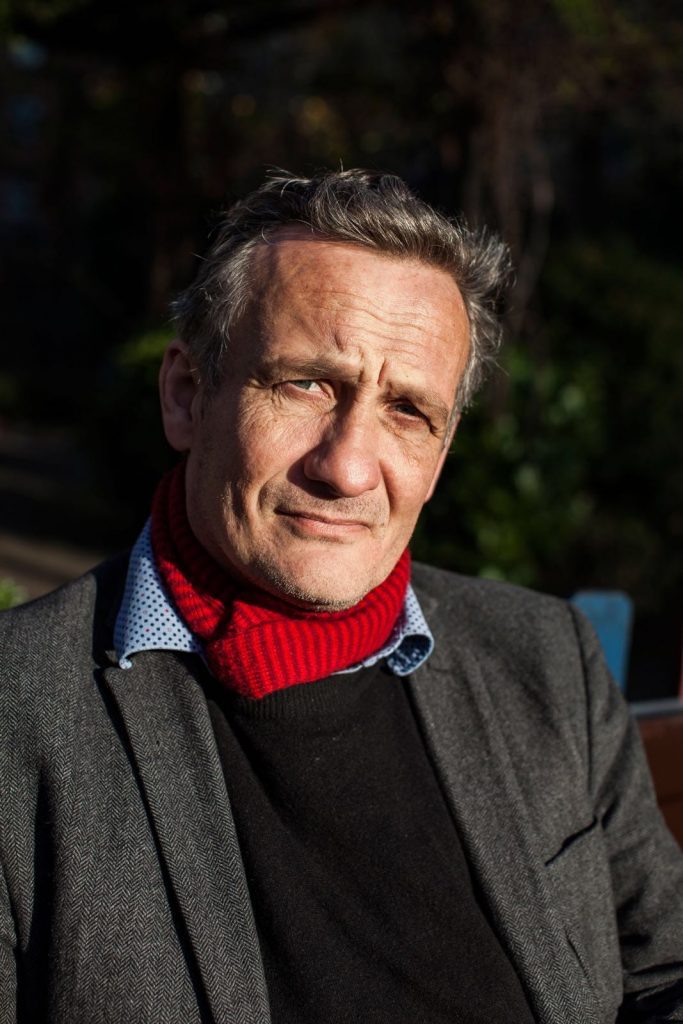
Soon after, Anders’ ibogaine provider suggested he put his degree in psychotherapy to use. Four years ago he became a world leader in pre-treatment counselling and guidance to people using ibogaine and other plant medicines.
“The process begins early on by asking all clients to trace the first moment when they decided the world was “f****d up and unfair.”
Anders added: “I then say, ‘if you saw that nine-year-old child now, what would you say to him and how would you treat him?’
“Plant medicine is about getting in touch with that child and treating him with love, respect and care. That’s where it all starts. Good recovery is not rocket science. Around 30 percent of people who take ibogaine without any therapy get better. We have an effectiveness rate of around 80 percent when the medicine is taken alongside therapy.
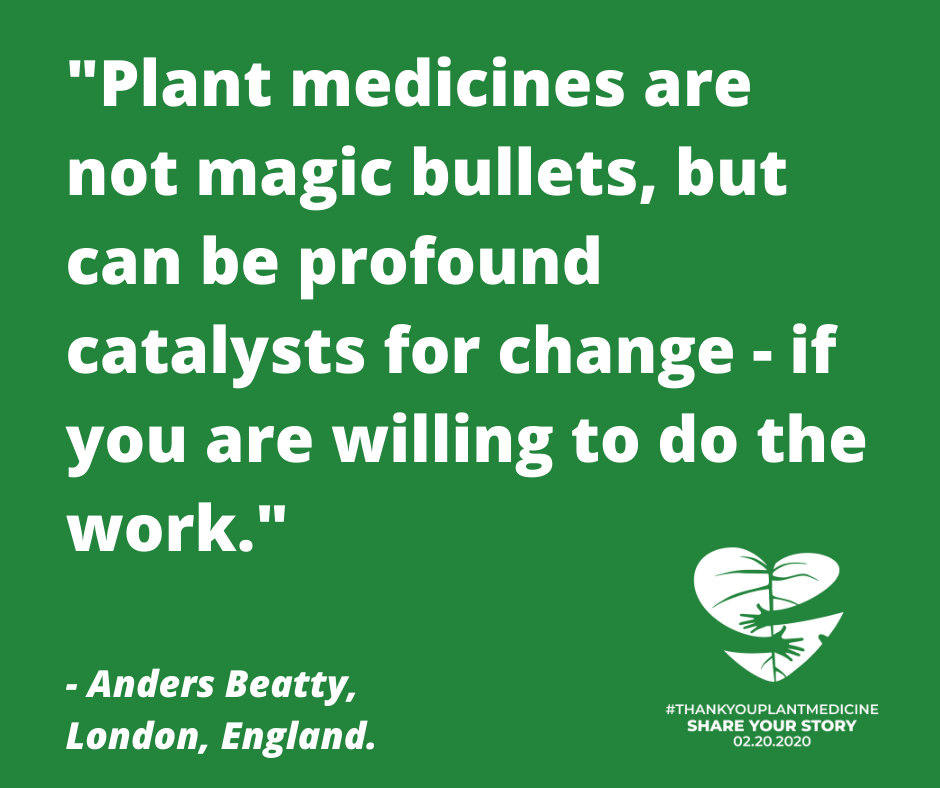
“We help clients come up with their own unique recipe for their recovery,” explained Anders. “We are helping individuals create new narratives for themselves, that they have ownership of.
“Once you understand what fostered conditioned narratives f****d you up in the first place then you have a platform to start creating your own. Owning who you are and who you want to be is the key.
“Plant medicines open that door in quite an extraordinary way. They are not magic bullets, but can be profound catalysts for change, if you are willing to do the self-work that the plants require.”
Anders’ counselling service at www.ibogaine-counselling.com now works alongside plant medicine clinics in Portugal, Spain, Mauritius, South Africa, Mexico, Canada and Costa Rica.
He is a supporter of the #ThankYouPlantMedicine (#TYPM) movement, writes daily articles, and travels extensively. There is definitely a book, backed by his own and others’ experiences, just waiting to be written!
Anders is passionate that the inner, spiritual route and self-forgiveness are essential components in addiction recovery.
He added: “I’m putting in the work. I love my life now. For so many years I couldn’t say that. Now I have a beautiful wife, a four-year-old child and a new-born. We bought a house for the first time, and we own a car. Most importantly, I’m also helping others help themselves.
“We have all got to learn to ease up on ourselves and cut ourselves some slack. We all mess up, frequently and in many ways. And that’s okay – that’s what being human is all about.
“I sometimes say to my clients, ‘the perfect human being is imperfect; they are chaotic, messy and all over the place. The imperfect human is the one that chases perfection; to chase perfection is what modern society is all about.
“No wonder so many of us have struggled under the weight of cultural and familial expectation. I say, ‘continue to rebel; create and own your life narrative!’ But this time around, make it a healthy one!”
* Want to join the #ThankYouPlantMedicine movement on Facebook? Come join our community by clicking here.
* Would you like to help spread our message and support the #ThankYouPlantMedicine movement as a volunteer? Please click here for more details.
DISCLAIMER & IMPORTANT SAFETY MESSAGE
The #TYPM movement does not encourage any illegal use or abuse of plant medicines and psychedelics, whether cultivated in nature or lab synthesized.
Psychedelics and plant medicines, even within the confines of applicable laws, are not appropriate or beneficial for everyone. They are not magical cures; they are tools that, when used properly – with respect, clear intentions, guidance, and a safe, supportive environment – can catalyze personal growth and healing.
To minimize harm and increase therapeutic potential, it is imperative that one performs sufficient research, adequately prepares, and integrates their own experience.





